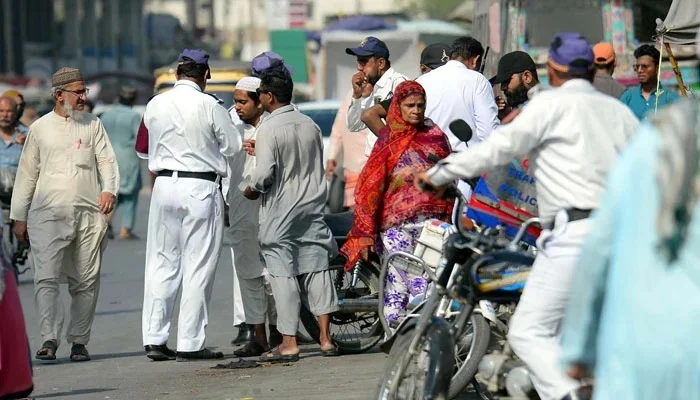
Karachi’s Faceless E-Challan Regime Issues Over 2,600 Tickets Within Hours
Massive Crackdown on Traffic Violations
Karachi’s traffic enforcement entered a new digital era this week as the city’s faceless e-challan system issued 2,662 tickets worth over Rs12.5 million within just six hours of its launch on Tuesday. According to a report released by the Karachi Traffic Police, the initiative marks a significant leap in modernizing road regulation and enhancing safety measures across the city.
The data showed that 419 challans were issued for overspeeding, three for driving on lane lines, and four for stop-line violations. A striking 1,535 motorists were fined for not wearing seat belts, highlighting the persistent disregard for fundamental safety rules. Additionally, 166 challans were recorded for red-light violations, while 507 were issued to riders not wearing helmets.
Other infractions included four cases of wrong-way driving on one-way streets, seven for tinted windows, five for illegal parking, and 32 for using mobile phones while driving. Authorities also recorded three cases of driving in the wrong direction and five no-parking violations.
Launch of the Traffic Regulation and Citation System (TRACS)
The wave of challans followed the formal inauguration of the Traffic Regulation and Citation System (TRACS) at the Central Police Office by Sindh Chief Minister Syed Murad Ali Shah on Monday. The system represents a cornerstone in Sindh’s ongoing digital governance and reform efforts aimed at improving transparency and efficiency in law enforcement.
CM Murad stated that TRACS replaces the traditional manual challan process with an AI-integrated, fully automated e-ticketing system. Through the use of advanced CCTV cameras, the system is capable of identifying violations such as overspeeding, red-light jumping, and helmet non-compliance without human intervention.
Ensuring Transparency and Eliminating Human Bias
A central feature of the TRACS initiative is its faceless operation, designed to eliminate discretion, confrontation, and corruption often associated with manual ticketing. The system ensures that every motorist is treated equally, with decisions based solely on digital evidence captured by cameras.
The Karachi Traffic Police emphasized that this model enhances accountability and fairness, minimizing opportunities for personal bias or manipulation during enforcement.
To facilitate public convenience, TRACS Sahulat Centres have been established at key traffic offices and police stations. These centers provide assistance in paying fines, clarifying violations, or contesting challans, ensuring accessible and transparent interaction between citizens and law enforcement.
Integration with Government Databases and Digital Payment Options
The TRACS system has been seamlessly integrated with major government databases, including Excise and Taxation, the Driving Licence Management System, and NADRA’s e-Sahulat. This allows citizens to view, verify, and pay fines through secure online platforms and mobile applications.
A dedicated TRACS mobile app enables users to track violations, receive instant alerts, and settle challans in real time. This digital convenience aligns with Sindh’s broader vision of e-governance and citizen empowerment.
Currently, 200 AI-enabled cameras have been installed across Karachi under the system’s initial phase. Plans are underway to expand coverage to 12,000 cameras citywide, followed by implementation in other districts of Sindh. Integration with the Citizens-Police Liaison Committee (CPLC) provides additional oversight, ensuring transparency and effective grievance redressal.







